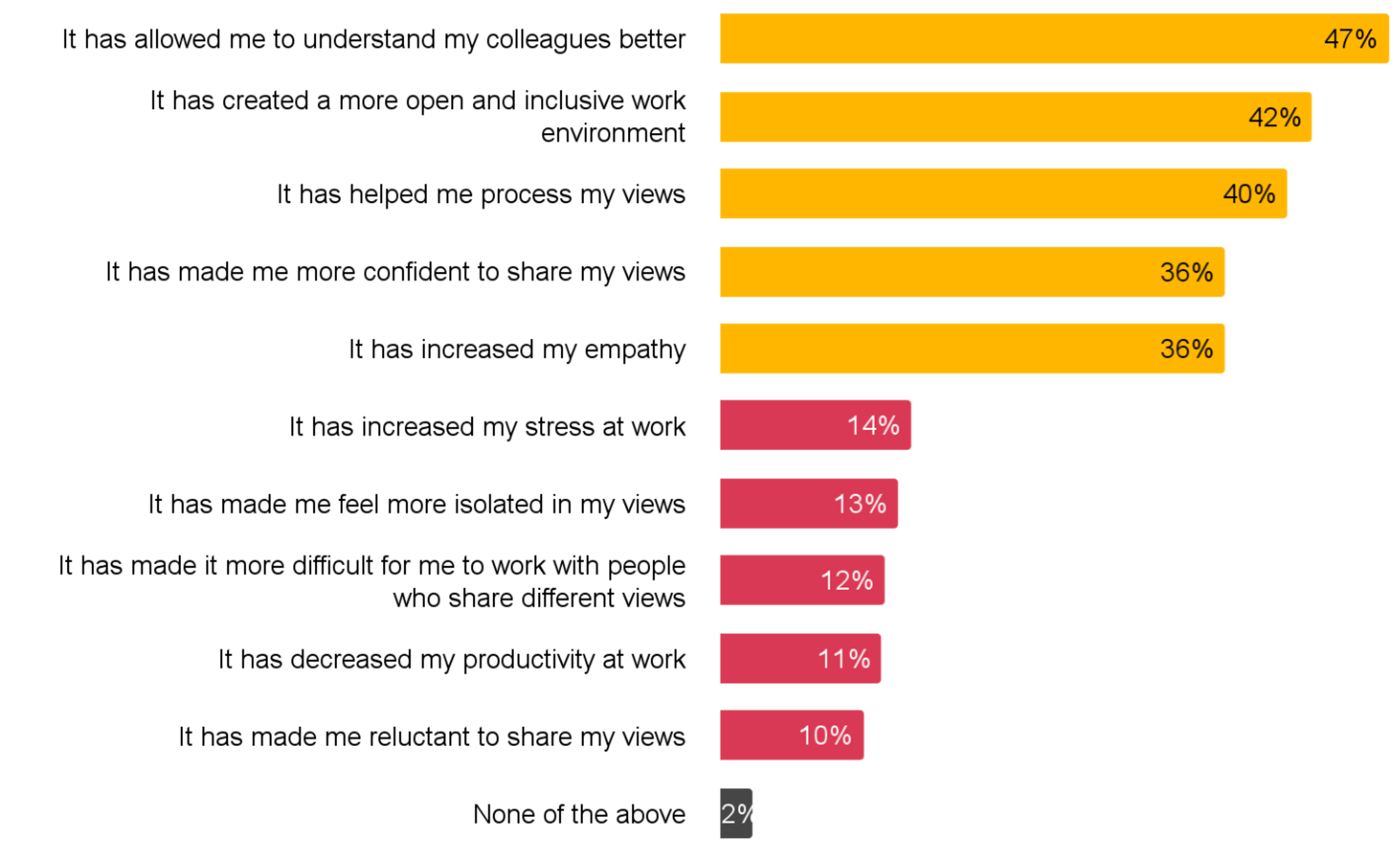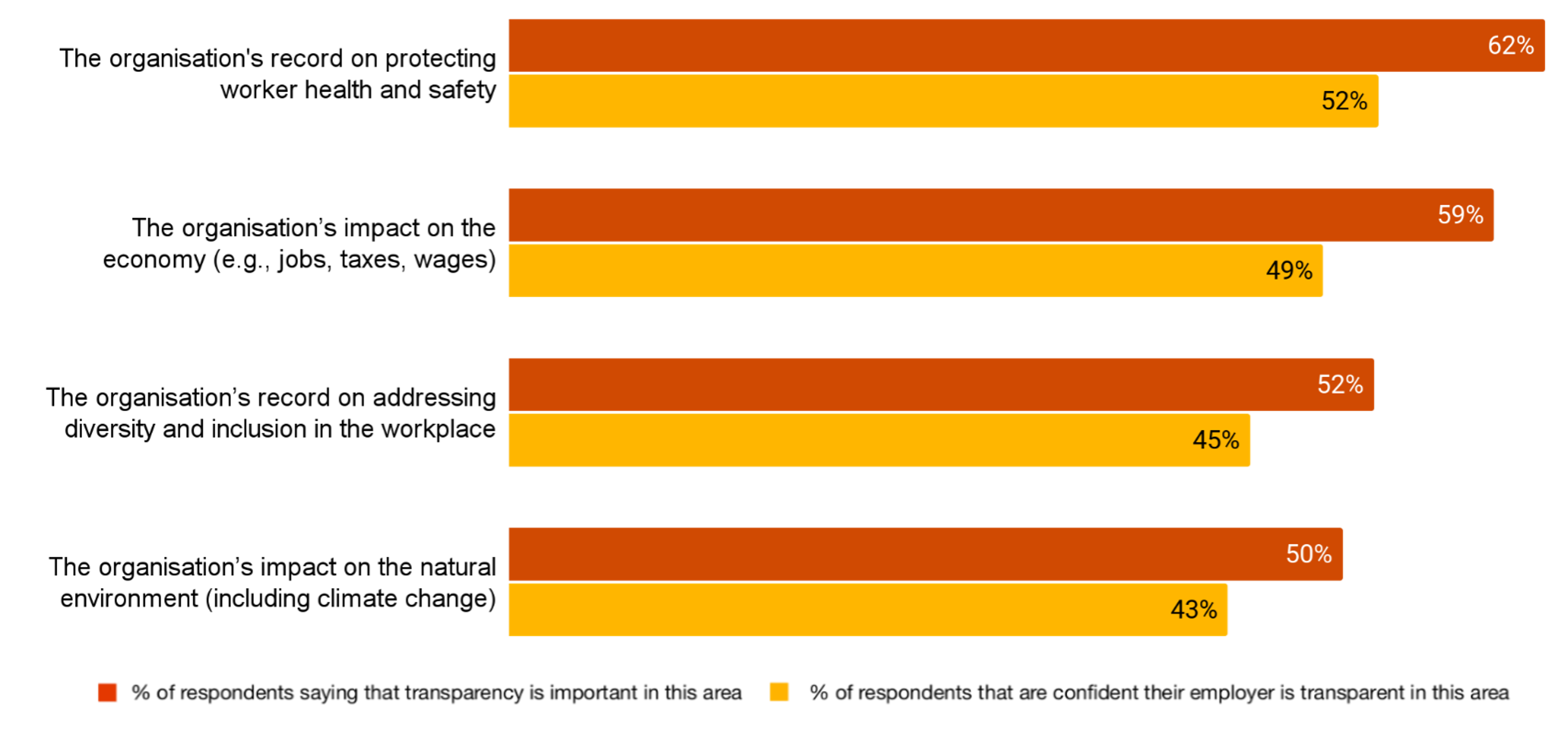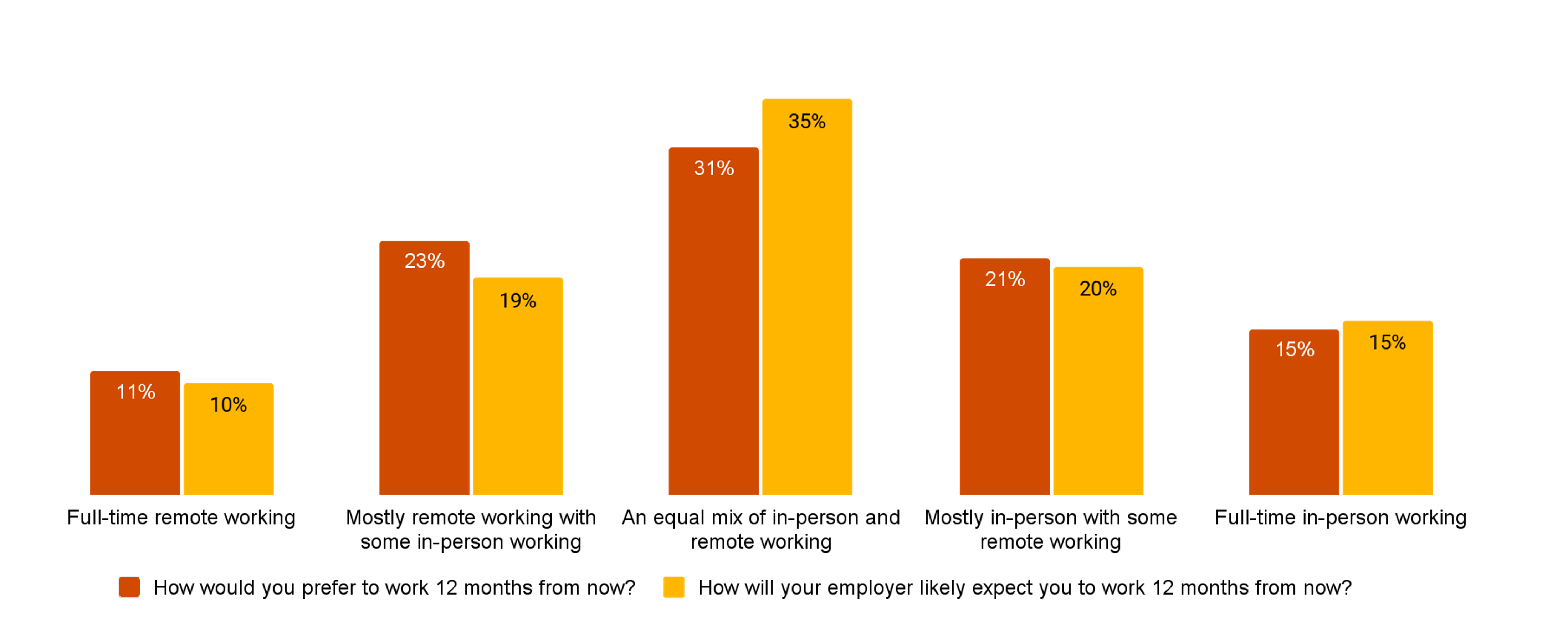
What Indonesians think about work today?
Amidst the current economic uncertainty and the post-pandemic world, there can be no doubt that employee priorities have evolved. Yet many organisations are still failing to pay enough attention to their skilled workforce seeking fulfilment, meaning and opportunities to drive positive impact to personal, professional and societal aspects.
Our ‘Workforce Hopes and Fears Survey 2022 (Indonesia version)’ investigates what Indonesians think about work today, covering topics such as current and future working behaviours, skills specialism, impact of technology, workplace empowerment and more. This year’s survey draws from 1043 local respondents, one of our largest surveys in Indonesia, providing you with local insights to help improve your workforce planning, strategy and people development, ultimately driving your organisation’s potential to the finest.
We hope that our key findings will be an insight for organisations to take actions in order to attract potential talents, develop and retain them.

Time for a workforce rethink: - Asia Pacific Workforce Hopes & Fears 2022
Nearly 18,000 workers across Asia Pacific participated in PwC’s 2022 Workforce Hopes & Fears Survey, and the results should be a wake-up call for employers across the region. Workers say they want more meaningful work, a better deal around fair pay, and to be able to bring their authentic selves to work. As Gen Z and Millennials represent more of the workforce, traditional models of leadership are no longer effective and the way we work needs to evolve.
Explore the key findings
Indonesian millennial workers are more concerned about the impact of technology on their roles
There has been no lack of discussion on the impact of technology on job roles. As a nation with an abundant young workforce, when asked on how technology might impact their job for the next three years, 42% of Indonesian millennials feel concerned that their role will be replaced by technology. With this concern on how technology might impact their job, it is no surprise that 49% of Indonesian millennials are concerned about not getting sufficient training in digital and technology skills from their employer.
42%
are concerned that their role will be replaced by technology
49%
are concerned about not getting sufficient training in digital and technology skills from their employer
So what are Indonesian millennials most concerned about in terms of technology’s impact on their job?
The lack of opportunities to work with or learn from colleagues with advanced technical or digital skills is the top factor, as well as the limited capacity to learn new technical or digital skills needed for their career. The fear of their job role being replaced by technology is another factor. While the opportunities and the ever-advancing technology matters, employers do play a role on investing in technology, as well as upskilling and reskilling relevant technical and digital skills.

53%
lack opportunities to work with or learn from colleagues with advanced technical or digital skills
42%
responded that their employers are not teaching relevant technical or digital skills required for their career
47%
have limited capacity to learn new technical or digital skills needed for their career
32%
responded that their employers are not investing in innovative technology
So what are Indonesian millennials most concerned about in terms of technology’s impact on their job?
The lack of opportunities to work with or learn from colleagues with advanced technical or digital skills is the top factor, as well as the limited capacity to learn new technical or digital skills needed for their career. The fear of their job role being replaced by technology is another factor. While the opportunities and the ever-advancing technology matters, employers do play a role on investing in technology, as well as upskilling and reskilling relevant technical and digital skills.
Indonesian workers have a high willingness to upskill themselves, but have concerns about getting the support from their companies
Indonesian workers have identified that 61% of their employers are upskilling to address shortages in skills and labour. However over 50% of the respondents do not have the capacity to learn new technical or digital skills needed for their career, while 46% perceive a lack of opportunities to work with or learn from colleagues with advanced technical or digital skills, suggesting that even though there is a demand for upskilling, holistic learning strategies have not been put into place to provide the necessary support required for upskilling.

While companies in Indonesia are providing access to learnings whether through MOOCS such as Coursera and Udemy or through corporate learning centre, having a holistic learning strategy requiring implementation of the surrounding learning infrastructure such as a good sourcing strategy (buy, build, borrow), having protected learning time, developing a learning community, and providing learning role models. Without these in place, often employees are overwhelmed by their BAU activities and are unable to develop themselves.

Respondents in Indonesia feel more positively about the meaning behind their work than their global counterparts
More than 60% of the respondents find their job fulfilling and that their workplace allows them to truly be themselves at work, showing a more meaningful work environment than the global scores of 51% and 53% respectively.
However, this higher score does not translate to engagement, with only 35% of respondents being extremely or very likely to recommend their employer as a place to work. Other areas of the work environment could still be improved especially on the impact of their work (“feel that their manager does not consider their viewpoints when making decisions”) and their autonomy (“are able to choose to do their work in a way that suits them”) to help boost people’s engagements.
To what extent do you agree or disagree with the following statements about your current work environment?
(Showing only “Strongly agree” and “Moderately agree” responses)

Indonesians are very open in having conversations with colleagues about social or political issues, and that is a net positive
77%
of respondents have discussions about social or political issues frequently/sometimes
Compared to the global average (65%), Indonesians are more likely to discuss social or political issues, with those numbers being higher for ethnic minorities (78%) and Millennial workers (80%). This higher likelihood also shows a higher level of positive impact such discussion have on the workforce, increasing understanding between colleagues and creating a more inclusive work environment.
Q. What impact have conversations with colleagues about social and/or political issues had on your work environment?
While the conversations are a net positive, care must be taken to minimise negative consequences, especially during politically charged times.


Indonesian workers call for greater transparency in ESG considerations
Across the board, the perceived transparencies of companies still require further improvement. As the focus is moving from pure financial performance to an ESG driven performance, companies can boost their employee value proposition and be more attractive to future employees by developing and promoting initiatives on ESG related topics.
29%
of workers said their company helped them minimise the environmental impact of their job
Q. How important is it to you that your employer is transparent about each of the following areas?
(Showing only “extremely important” and “very important” responses)
Q. How confident are you that your employer is transparent about the following areas?
(Showing only “extremely confident” and “very confident” responses)

Due to the pandemic and impact of digitalisation, Indonesian workers believe that hybrid working is the new norm
The discussion of working from home versus working in office has been a hot topic among Indonesian workforce since the beginning of the pandemic. It appears that 69% of our respondents believe that they can work from home, higher than the global level.
69%
of Indonesian workers believe they can work from home
54%
of global respondents believe they can work from home
With the Indonesian economy recovering from the pandemic, in-person working has been expected by employers to a certain extent. Currently, 18% of respondents are working remotely full-time, as compared to 5% who are working in-person full time. The middle ground is to create a mix of both, known as hybrid working, as currently done by 77% of respondents.
When asked on how they would prefer to work 12 months from now, the number of respondents that prefer hybrid working remains constant at 75%, with 74% expecting their company to offer a hybrid working approach. However, when we go further on discussing the balance between remote working and in-person working in a hybrid working approach, an equal mix of both options will be the most favoured for both employees and employers. With these insights, organisation leaders have to find a way to meet employees working preferences, finding the right balance between work flexibility and business needs.


















